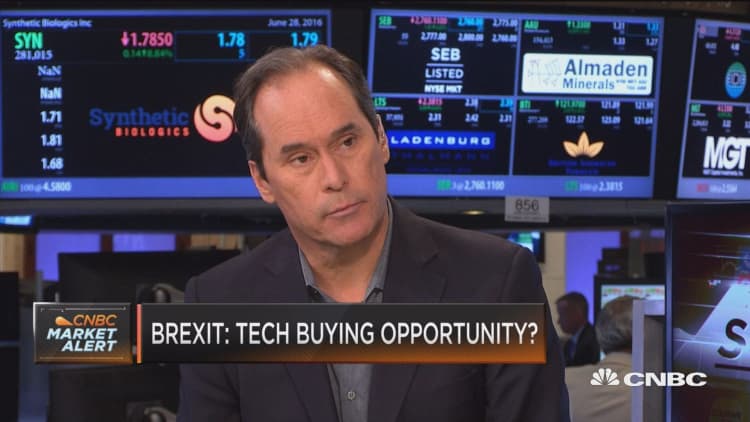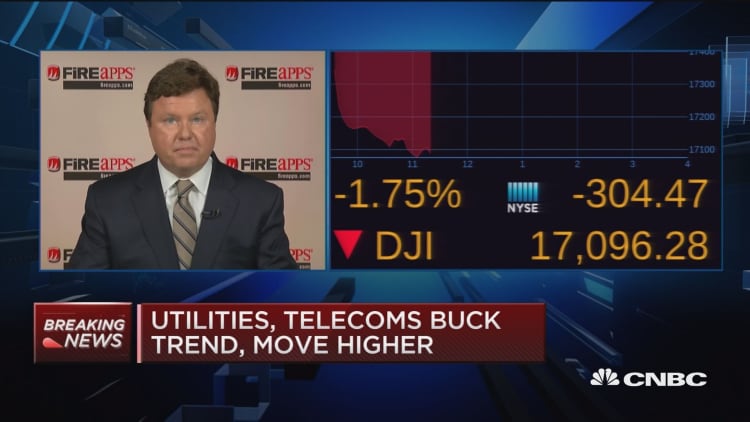When ScreenCloud's CEO Mark McDermott woke up to the shock news that Britain had voted to leave the EU, a string of expletives crossed his mind.
"I felt pretty numb," he told CNBC via email from London. "I was pretty much glued to the news on television after that. I couldn't believe we had hit the self-destruct button on our own economy."
Britain's referendum decision on June 23 to divorce the EU has created a wave of uncertainty for the U.K. tech scene, and ScreenCloud - an early-stage digital signage business started by McDermott in 2014 - was one of many start-ups caught in the cross fire.
But Asia may be ready to help.
As U.K. businesses wrestle with new worries over the mobility and accessibility of talent, data flows and access to European markets, Asian funds and advisory firms are ready to capitalize on a potential uptick in interest and demand from U.K. and European startups.
ScreenCloud is now shifting its funding ambitions from West to East, by looking to Asia to raise capital to fuel its next stage of growth.

"Nobody really knows how bad this is going to be, and in times of uncertainty, people just pause," McDermott said. "With uncertainty in Europe, we are seeing better opportunities in North America, Australasia and Southeast Asia."
ScreenCloud has its headquarters in London and an office in Bangkok. It has spoken to multiple investment funds in Singapore and Thailand since the Brexit vote and hopes to raise $1.25 million.
"I think London has a heavy fintech and AI [artificial intelligence] bias right now, which is flourishing, but a tad narrow," the ScreenCloud CEO said. "Asia, by contrast, is flourishing with a lot of money coming into tech from within the region and also from overseas, as the U.S. looks beyond the valley for growth markets."
The region is ready
Interest from Western financial technology firms in a potential move to Asia has been growing, according to Markus Gnirck, partner and co-founder of Tryb, a Singapore-based investment and advisory firm.
"Given the maturity of fintech markets in Europe and the U.S., it's a natural next step for a company to look out for new opportunities to expand into," he told CNBC.
While Gnirk said there hadn't been an immediate rise in concrete interest from U.K. start-ups in a move to Asia since the Brexit referendum, he noted that the frequency of emails and conversations with a few firms had increased. For good reason, he said - Asia offered opportunities not available elsewhere.
"The amount of fintech companies in Singapore in the last 12 months has increased by more than 200 percent and funding is not drying up like in other markets," he added.
"In many markets, like Vietnam, Thailand and the Philippines, the fintech conversation has just started and consumers are hungry for new solutions."

Willson Cuaca, managing partner and co-founder of East Ventures, which provides early-stage seed capital to promising startups, agreed.
"The Southeast Asian market is so hot," he told CNBC.
The firm operates five offices spread across Jakarta, Tokyo and San Francisco and has so far invested in more than 150 companies in Asia and the U.S., including property platform 99.co in Singapore and e-commerce app Shoppr in Malaysia.
Cuaca said Asia had high growth potential because of its generally low internet penetration, an expanding population and a growing middle class with more disposable income.
Acquisition potential
The shifting landscape also presents an opportunity for other players in the space, such as those interested in buying start-ups or their products.
Frank Troise, managing director for Asia at Leonteq, a financial technology company, said there had been a general slowdown in new capital coming into the global fintech field for some time, and that the Brexit situation was likely to prolong the issue in Britain.
"This presents early, seed, Series A, and Series B-stage funded companies with a dilemma, as no new capital is coming into the U.K. until Brexit is resolved," he told CNBC. "For us and other mature corporates in the space, we have the opportunity to review valuations and intellectual property as potential acquisitions."
Troise says the majority of start-up CEOs had local-market experience and that it would be natural to expect that businesses would continue to operate in or near their local markets where they have domain expertise.
"The value of the U.K. was the ability to establish a beachhead and passport to the EU. With Brexit that is now gone, and those firms in the U.K. now have to assess whether they continue with the EU," he said.
"Following that, they can assess whether or not Asia is a viable next, or replacement option."





